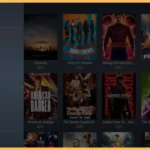
Unlike broadcast TV, cable TV, or satellite signals, IPTV (Internet Protocol television) is a service that uses the Transmission Control Protocol/Internet Protocol (TCP/IP) suite to deliver television programming and other multimedia information.
Via IP networks, an IPTV service typically offered by a service provider displays live TV shows or on demand video content.
An IPTV system can be used in an enterprise to deliver video content over a private network, but because of its complexity, network latency and scalability problems, subscriber based models are far more popular in such implementations.
How does television via Internet Protocol operate?
A controlled or dedicated network, such as digital subscriber Line connectivity is frequently used to deliver IPTV content A private network allows network operators greater control over video traffic than the public internet does This control enables them to guarantee quality of service, uptime, capacity, and reliability.
All television content is simultaneously transmitted in a multicast style under traditional television delivery viewers choose programs by flipping through the TV channels as the available program signals trickle downstream.
In contrast, an IPTV service uses a unicast format, sending only one show at a time. Only the program that the end user chooses is transferred to their device all other content stays on the internet service providers network.
A fresh stream is sent straight to the viewer from the providers server when they switch channels. Similar to cable television, IPTV also needs extra equipment on the customers premises, like a fiber optic or broadband internet connection, a Wi Fi router, and a set top box.
For IPv4 based live television broadcasts, IPTV typically uses IP multicasting with Internet Group Management Protocol; for on demand programming, it uses Real Time Streaming Protocol. In IPv6 networks, multicast listener discovery is employed. Real Time Messaging Protocol and Hypertext Transfer Protocol are two other popular protocols.
What are use cases for IPTV?
VoIP and high speed internet are examples of IP based telecommunication services that can be combined with IPTV since it operates on a packet based delivery mechanism.
Through the use of IP, providers can also support a wide range of other services and applications, including time shifting, which is a catch all term for TV services that let viewers watch content in ways other than live broadcasts, like digital recording, on demand television shows, and the option to rewind or resume a live program that is already underway.
IPTV is in competition with internet TV, a different distribution model that describes television programming that is accessed via a broadband connection and distributed over a website.





